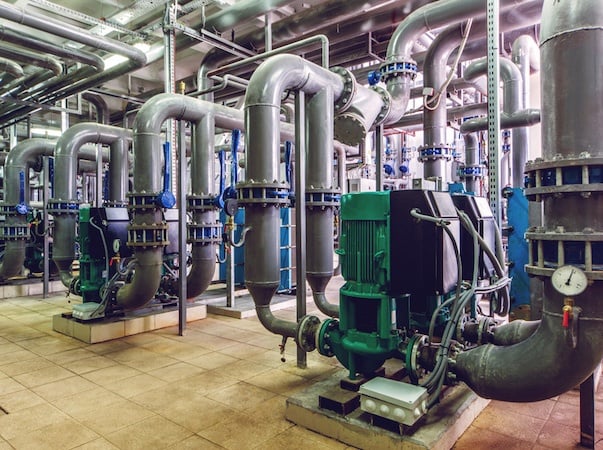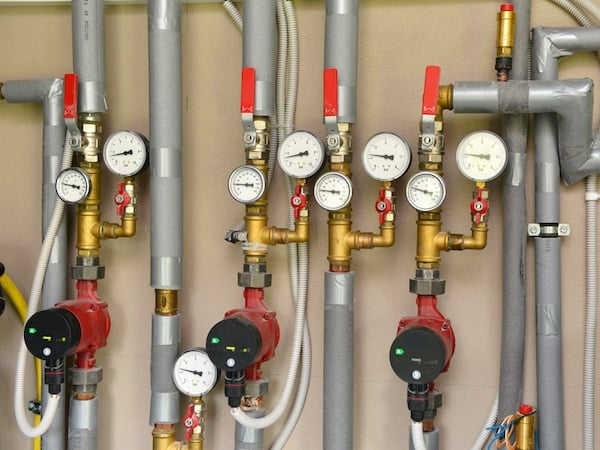HVAC Technicians – Job Profile, Specialisation and Areas of Application
Anyone who is considering hiring an HVAC technician should understand the basic job role, which areas of specialisation are most common and other areas where they are useful. Of course, when it comes to HVAC technicians, using a specialist subcontracting firm to supply the required manpower is often preferable. Subcontractors offer greater flexibility and will have the required skills for particular jobs.
Furthermore, technicians involved in heating, ventilation and air-conditioning will often have transferable skills that means they can be deployed in areas of work outside of conventional HVAC tasks. The majority of qualified HVAC technicians will have good record-keeping and interpersonal skills because they are so often carrying out work on clients’ sites.
HVAC systems are becoming increasingly complex, too. With that in mind, a typical HVAC technician will have to maintain a good degree of technical capability and to keep up with the latest technologies as they come on stream. In many cases, this will involve acquiring some new skills and obtaining further qualifications in HVAC maintenance.
A Typical HVAC Technician Job Profile
The job profiles for both in-house and subcontracted HVAC technicians are similar. The main difference is that many subcontractors who work in this area will be self-employed rather than working under a permanent contract with a large HVAC maintenance and installation firm. Other than that, the work will primarily involve the installation and repair of ventilation and air conditioning systems.

In terms of repair and maintenance, the job involves diagnosing both electrical and mechanical faults that may have occurred – or could soon do so – with a variety of different HVAC systems. Some technicians are particularly skilled at proactive, preventative maintenance work while others specialise in fault finding.
Either way, repair work should be conducted promptly and efficiently with daily logs of completed tasks and any spare parts used maintained at all times. This means an HVAC technician will need to have good organisational skills and the desire to troubleshoot where necessary.
Desirable HVAC Technician Qualifications
In the Republic of Ireland, HVAC technicians should be registered with F-Gas and have the necessary HVAC training under their belt. In the UK, there are a number of different levels of HVAC qualifications that technicians may have. For the more complex installation and maintenance work, higher levels of qualification will be needed.
This is another advantage of subcontracting HVAC technician work since it means being able to obtain the right level of HVAC qualifications for the job at hand. Typically, a Level 1 Certificate in Refrigeration and Air Conditioning will be the first qualification an HVAC technician obtains. He or she then may move on to obtain further qualifications.
These might include a Level 3 Diploma in Refrigeration, Air Conditioning and Heat Pump Systems or a similar one in refrigeration systems installation and maintenance. Some HVAC technicians obtain these qualifications via BTEC or City and Guilds full-time college courses but the industry is also geared up to allow technicians to train while undergoing on-the-job apprenticeships, too.
Areas of Specialisation Among Technicians
As mentioned, some HVAC technicians will find that their approach to their work makes them more suited to fault finding than to preventative maintenance. Nevertheless, most qualified HVAC technicians will be able to perform both sorts of tasks. Some will specialise in repair work while others prefer installation and commissioning tasks.

Overall, industry specialisations tend to come down to working with certain technologies more than others. For example, some HVAC technicians will be almost entirely focussed on air-conditioning work during their careers while others will have a much greater emphasis on heat exchange work or underfloor heating systems. Equally, some are more focussed on the electrical installation side of the business than the mechanical aspects of the job.
As HVAC technicians careers’ progress, they may branch out into related specialisations that are common in the sector. Some of this may include planning in terms of health and safety evaluations which is a big part of HVAC work today. Others may develop management skills and begin to work in supervisory roles, perhaps helping to train new HVAC technicians.
Applications Suited to Trained Technicians
HVAC technicians are good problem solvers who are often used to working in confined spaces within buildings. This means that they are usually able to install and repair all sorts of ducting in structures, not just those that relate to ventilation and air-conditioning systems. As such, they are often able to work with plumbing and electrical systems, too.
Since many HVAC systems are electrical, the mechanical and engineering skills that HVAC technicians have also make them useful with the management of other wired systems in buildings. These might include telephony wiring systems, lighting wiring and even data communications cabling. In addition, many HVAC technicians will be trained to work at height safely, another area of work for which they are most suited.
HVAC technicians will also have the necessary skills to monitor and maintain other sorts of equipment. Typically, this will include looking after things like internal testing equipment, such as air flow meters, humidity level data loggers, power meters and even gas leak detection equipment. Many HVAC technicians will also be qualified for a wide range of gas safety work.
Why Subcontract HVAC Technician Work?
With so much going on in the field of HVAC installation and maintenance and so many industry developments to keep up with, hiring in-house HVAC technicians can be a costly business. Not only is there the cost of recruitment and retention involved, but the need to maintain ongoing training to meet all of the latest regulations and updates.
When you hire a subcontracting firm to supply you with an technician, then all of these costs are built into the price you pay. In other words, it is much easier to plan – financially speaking – for the cost of an HVAC system installation and its ongoing maintenance with such a model compared to hiring and upskilling your own team.
Most HVAC systems are reliable and although the need to be checked frequently, you will need multiple installations to make having your in-house manpower resource worthwhile. This is in stark contrast to outsourcing the job which means being able to obtain the exact skills you require on a flexible, on-demand basis.